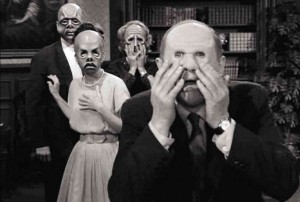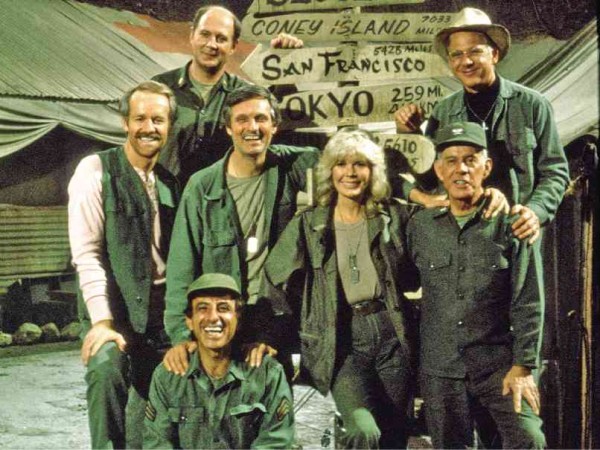Most memorably influential TV shows revisited
The television medium has come a really long way since it started telecasting 70 years ago. At the time, prognosticators didn’t hold much hope for the fledging, sputtering communication form, which they felt would be useful only for providing images for advertising campaigns.
Well, so much for nay-saying “visionaries”: These days, TV has become more popular than radio, print and the movies; has helped presidents get elected, and rules over billions of viewers’ consciousness, 24/7.
Creative impact
But, television didn’t get to this preeminent position just by wishing and winging it. Its development has been enhanced and furthered, not just by brilliant inventors, but also by daring artists and craftsmen who have taken all of that state-of-the-art technology and used it to great, creative impact and acclaim.
Article continues after this advertisement
“THE TWILIGHT ZONE.” Made its audience reexamine its parameters for logic, normalcy and acceptability.
Looking back at their seminal and revolutionary efforts, we have been struck most by the contribution of the ’50s drama series, “The Twilight Zone.” It made a profound mark on the sensibilities of viewers and TV people alike, because it dared to tell stories about paranormal and implausible events that made viewers reexamine their parameters for logic, normalcy and acceptability.
Article continues after this advertisementImaginatively scripted by Rod Serling, “The Twilight Zone” made it easier for other TV networks to make good use of the new TV medium’s power to create and imagine, and to take its viewers into a brave, new world of their own imagining.
It was our good fortune to be able to attend a scripting lecture by Serling, sponsored by the US embassy, so we know that he was no perfervid devotee of shock and shlock value for its own sake—in fact, he was a rigorous stickler for logic and craft, but he knew when to put it to use for illuminatingly far-out purposes.
That’s why, more than 50 years after they were first written and filmed, some of his stories still retain their ability to seduce and entrance viewers, and to lead them, bright-eyed and breathless, into—“The Twilight Zone.”
Comedy in carnage
After Serling’s seminal series, the most memorable and influential TV show to come out of the Vietnam War period was “M.A.S.H. (Mobile Army Surgical Hospital).” The landmark series strove to and succeeded in doing the “impossible”—to mine the savagely lethal war for all of the “black” humor it harbored.
War is the most unfunny human activity of all, especially to its victims, but the ’60s series was able to do the exceedingly unlikely, because it was important for everyone’s sanity to do so.
They saw the brutal and bloody carnage through the eyes of a team of doctors and nurses whose grim task it was to try to save the lives of the battle’s front-line victims. To keep themselves from getting stark, raving mad, they cracked mordant jokes, flirted with each other and thought up silly pranks to make their bloody tasks more bearable.
Throughout all this, however, their heroism still shone through as they “nonchalantly” saved lives, day in and day out, no big deal. This ironic contrast was hugely appreciated by viewers, whose avid patronage kept the unusual show on the tube for years, and even spawned a hit movie!
“M.A.S.H.” also inspired the production of satirical shows and films that dealt with harsh reality—but “tweaked” it for humanizing insights, brought out their true significance and meaning.
